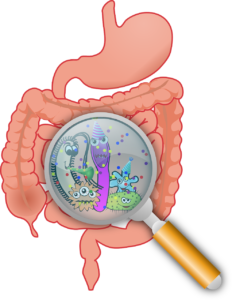 It has been found that besides an imbalance of bad bacteria, parasites or fungi a range of foods called the FODMAPs have been implicated in many digestive disorders as well.
It has been found that besides an imbalance of bad bacteria, parasites or fungi a range of foods called the FODMAPs have been implicated in many digestive disorders as well.
So just what are these? and why have they gained popularity as one of the supportive measures in the management of those diagnosed with IBS.
The term “FODMAP” stands for Fermentable Oligosaccharides, Disaccharides, Monosaccharides, and Polyols. These nutrients are prevalent in much of our foods.
Here are a few of them:
- Oligosaccharides, such as fructans/fructooligosaccharides (found in grains and vegetables).
- Galactans/galacto-oligosaccharides (found in legumes).
- Disaccharides, such as lactose (found in milk and dairy products).
- Monosaccharides, such as fructose (found in fruit and honey).
- Polyols, such as sorbitol (found in sweetened products).
Why should we take notice of FODMAPS?
Susceptible people can experience intestinal symptoms from the eating of FODMAPs because of the way they act in the digestive system.
- Firstly, these carbohydrates are not well absorbed into the body and remain in the digestive tract for longer periods than expected.
- FODMAPs draw water into the intestines, which can increase bowel motions and promote diarrhoea.
- These carbohydrates can be metabolised by the bacteria that normally reside in the bowel, producing gases like hydrogen or carbon dioxide, which cause excessive abdominal bloating, abdominal discomfort and pain and flatulence.
These symptoms are similar to those of Irritable Bowel Syndrome and could include diarrhoea, vitamin, and mineral deficiency, bloating and flatulence, abdominal cramping, headaches, and nausea. When someone presents with IBS symptoms, leaving out FODMAP foods can be useful.
To find out if FODMAPs might be contributing to your IBS symptoms, the most effective strategy is to eliminate all FODMAP containing foods and observe your symptoms. This is done for a short period of time. It is then followed by a stepwise re-introduction of the different Fodmap categories to find out which of these may be contributing to your symptoms.
However, if you are having limited success with the FODMAP diet, you may need to check for small intestinal bacterial overgrowth, parasite infection, food sensitivities and stress hormone abnormalities, all of which can contribute to IBS symptoms.
So you can see that there are many factors that need to be taken into account when addressing IBS symptoms.
A word of caution here, mind you, It is not generally recommended that you follow a low FODMAP diet for life; restricting the dietary intake of a wide array of foods should generally be avoided if possible to reduce the risk of nutrient deficiencies.
Do talk to us if you need guidance. Ring 98799596 or click here.
FODMAPs are a normal part of the diet and have benefits for health, such as providing fibre and probiotics for gastrointestinal health.
Because of this, there is a special method used in finding out which FODMAP is the culprit, if at all!
If you are one of those struggling with IBS, why not make an appointment with one of our practitioners as soon as you can to direct you as to how to best find out which of the
Get in touch now!
Call us on 03 9879 9596.

